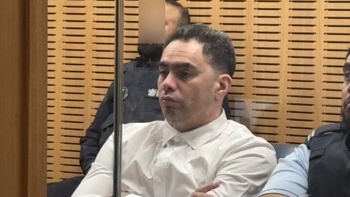A junior doctor says it's tragic that strike action is necessary but the current working conditions could jeopardise patient care.
The strike will see thousands of people miss out on surgery today and tomorrow as 80 per cent of junior doctors walk off the job.
A second 48-hour strike is also planned for January 29-30.
Doctor Patrick O'Regan, who is picketing today at Auckland Hospital, told Tim Dower most junior doctors regularly work 16-hour days.
"Most of us would do that at least once a week and there are stretches where, if you're working the weekend, you work both weekend days and then probably another one the following week which would be 16-hours or so."
Under new rules, doctors can work a maximum of 10-days in a row, with three of those days being allowed to be 16-hour days.
He said there are two key issues motivating the strike.
"The first is the safer hours, which we fought for a couple of years ago and the DHBs are seeking to undermine. The second, is the removal of a number of union protections, that we have in our contracts, that stop the DHBs from doing things like moving us between cities or having us work more than 16-hours in one stretch without our agreement."
O'Regan said he thinks the longer hours are a cost-saving method for DHBs.
"It's expensive to have more doctors on the job. That's the main reason we can think of."
"There are some things about those rosters which make it more difficult for them to provide us with training. So we feel it's mostly an expediency for them."
He said extremely long working hours don't help care for patients.
"None of us are saying we shouldn't work long days or work weekends, we all accepted that when we became doctors, the issue we have is when that gets to a point where we are unable to look after people properly."
Meanwhile, District Health Boards spokesman Dr Peter Bramley told Tim Dower DHBs are committed to looking after the junior doctors.
"This is about shaping the best training experience but also shaping the working rosters to enable us to deliver the right care to the right people in the right place."
"Our first commitment is to patient care, the second commitment is to making sure our employees are working in safe conditions..where there are plenty of limits to ensure safe rostering is still in place but we are wanting some greater flexibility that allows [us] to configure the rosters to deliver better care."
Bramley told Newstalk ZB the main sticking point for the DHBs is flexibility over rosters.
"At a local level, at a particular service level, the one size fits all approach to rostering actually isn't working and if they can have local decision making in conjunction with the RMOs [Resident Medical Officer] then we can get a better training experience."
He hit back at claims that the DHB wants to "have it all", saying RMOs will be consulted about their rosters.
"We are committed firstly to looming after them as employees. We are committed to safe care as DHBs but actually, RMOs are in training and they do move around and it's that want to move around between hospitals in a planned way that enhances their training opportunities."
Bramley said the key issue of the strike isn't relayed to money or pay negotiations.
"We haven't really talked about the money. I don't think money fundamentally is at the heart of this."
"The issue around how we are supporting and working with our RMOs in delivering care is the key issue at stake."
Take your Radio, Podcasts and Music with you









